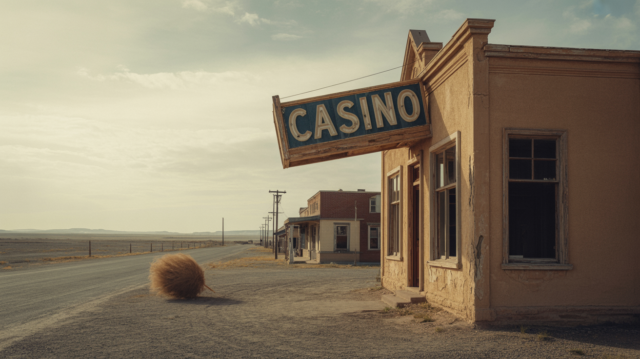There’s roughly 492 commercial casinos operating in the United States, with these providing jobs for many and the potential to bring in a whole lot of revenue.
While Las Vegas is known worldwide as being the ‘home of casinos,’ the city actually only houses 20 percent of the nation’s casino industry. The remainder are dotted around, with some areas also becoming hotspots in their own right.
But what happens to these towns and cities if the markets see a big drop off? With this in mind, we’re looking at the impact casinos have on their locations.
Where are the casino towns in the United States?
Las Vegas, in Nevada, is first on the list for being a casino-dominated area, as this has been the case since the state legalized gambling in 1931.
The golden age of casinos is largely described as being from the 50s to the mid-70s, when the city began to transform into a gambling and entertainment hotspot. It attracted the rich and famous, with this being the prime time for glamour and glitz. According to research, Vegas has over 375 gaming facilities.
The city of Reno, also in Nevada, is another place known for its casino gambling. It saw a surge in gambling activity from the year it was legalized in the state, with the 30s and 40s being its golden years.
Oklahoma, California, and Colorado are the three states with the most casinos after Nevada.
Are there negative impacts of opening casinos in America’s towns?
Despite gambling being more accessible than ever, thanks to the devices in our pockets, casinos have long been hailed as an easy revenue maker for local governments.
They can bring in a major boost to tourism, while providing more job opportunities for people living nearby.
But it doesn’t always go as planned, with towns and cities sometimes struggling to keep up if the market goes awry.
Becoming overly dependent on the casino industry
Let’s look at Tunica in Mississippi, with this town once known for being the place to be able to visit many different casinos in one area.
Before gambling was legalized in the early 1990s, the town was known for being one of the most impoverished places in the United States. This outlook began to change though as the development of casinos started (just outside of town lines) and these soon then ranked as high as the third-largest casino-gambling destination in the US as measured by gaming revenue.
From the outside looking in, casinos appear to be the predominant focus with the community not having a great amount of infrastructure other than what is adjoined to the casinos.
Over the last decade, there has been a decline in the casinos in Tunica. The growing expansion of casinos in other close-by areas like Arkansas have largely been to blame in the media. The result? A number of abandoned buildings and people out of jobs.
When Covid-19 hit, the president of the Tunica County Chamber of Commerce and Economic Development Authority, Charles Finkley, told the press “we’re trying to diversify our economy.”
It was reported that officials are aiming to make the area less susceptible to economic downturns by expanding employment beyond casinos.
A ripple effect on the housing market
After major casino developments have started, places like Las Vegas, Macau, and Singapore have all seen their property markets heat up. In Singapore, the property prices in the area around Marina Bay Sands saw a surge when the business opened its doors.
It’s through these new developments and casinos that jobs can be created in the area, while boosting tourism and improving infrastructure. When this is done successfully, property prices and demand in the surrounding areas can rise.
This can be a double-edged sword, though, as Daniel Cabrera, CEO of Fire Damage House Buyer, explained: “Depending on where the casino is situated and its level of success, neighboring communities might experience expanded commercial development… or alternatively, increased traffic and noise that discourage buyers.”
He also spoke about speculative buying as a possible distortion: “Speculative buyers could purchase homes in areas around an impending or new casino in anticipation of value appreciation, distorting local pricing patterns.”
While this impact on the housing market is attractive for investors, it could also be pricing out the locals.
Featured Image: AI-generated via Ideogram







